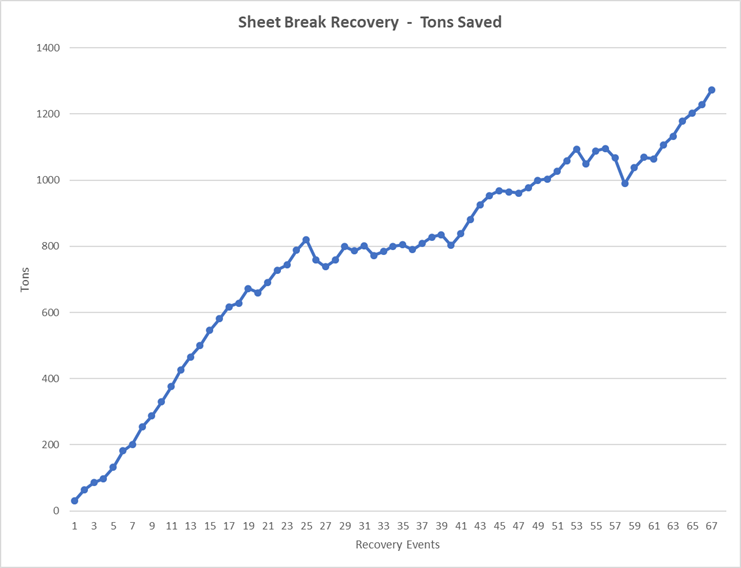Even Small Wins Matter – Improving a Pulp-and-Paper Mill’s Sheet-Break Recovery Time
solutions

Even Small Wins Matter – Improving a Pulp-and-Paper Mill’s Sheet-Break Recovery Time (1)
As part of implementing Reliability Excellence in a large pulp-and-paper mill, Life Cycle Engineering, Inc. (LCE) assigned a Lean subject-matter expert to identify and eliminate production losses and aggressively investigate potential limiting factors that could be resolved quickly. These loss-elimination activities had two objectives. First, to begin the change process by getting the workforce involved in resolving problems that negatively affect the plant. Second, to generate immediate improvement in plant performance and profitability.
Anecdotal information was supported by analysis of plant data and identified the pulp dryer as the bottleneck in the operation. The pulp dryer is a massive and critical asset located at the final stage of the pulp production process. If the dryer is not running, there is no finished product for the customer.
Wood pulp is formed into a sheet and dried before being cut and stacked as the final product. Sheet breaks were a known irritant to the plant operation. Besides stopping production, the breaks required a complicated set of actions to recover from the break and return to normal operation. Based on data analysis and direct observation, LCE’s Lean expert noted that break recovery times varied widely and there was no documented procedure in place to perform the recovery.
Solving the Problem with a Cross-functional Team Significantly Reduces Recovery Time
A cross-functional team was created to investigate this problem and determine a permanent solution. Using a Lean tool called a standard work combination sheet, the team identified all the steps necessary to recover from a sheet break and the time required to perform each step. The team also created an associated standard operating procedure (SOP) which contained a step-by-step procedure including pictures for how to properly recover from a sheet break. Operators were trained in the new procedure, and a follow-up process was implemented.
The implementation of a standardized break recovery procedure resulted in an overall reduction in the time required to recover from a sheet break. The cumulative time saved is depicted in the graph below. As hardwood pulp prices continue to rise, every additional minute in production improves revenue and profitability.

The Impact of a Quick Win Improvement
While focusing on preventing production downtime is important, it is also important to rapidly recover from a downtime event. This client achieved a “quick win” improvement in plant performance by analyzing and correcting a problem without a large capital investment. The increased awareness of the importance of documented standards has spread across the plant, resulting in further improvements in throughput and profitability. Plant personnel gained an appreciation of a proactive approach to plant operations and the power of an effective, cross-functional team. This has the effect of increasing a sense of ownership, teamwork, and problem solving.

